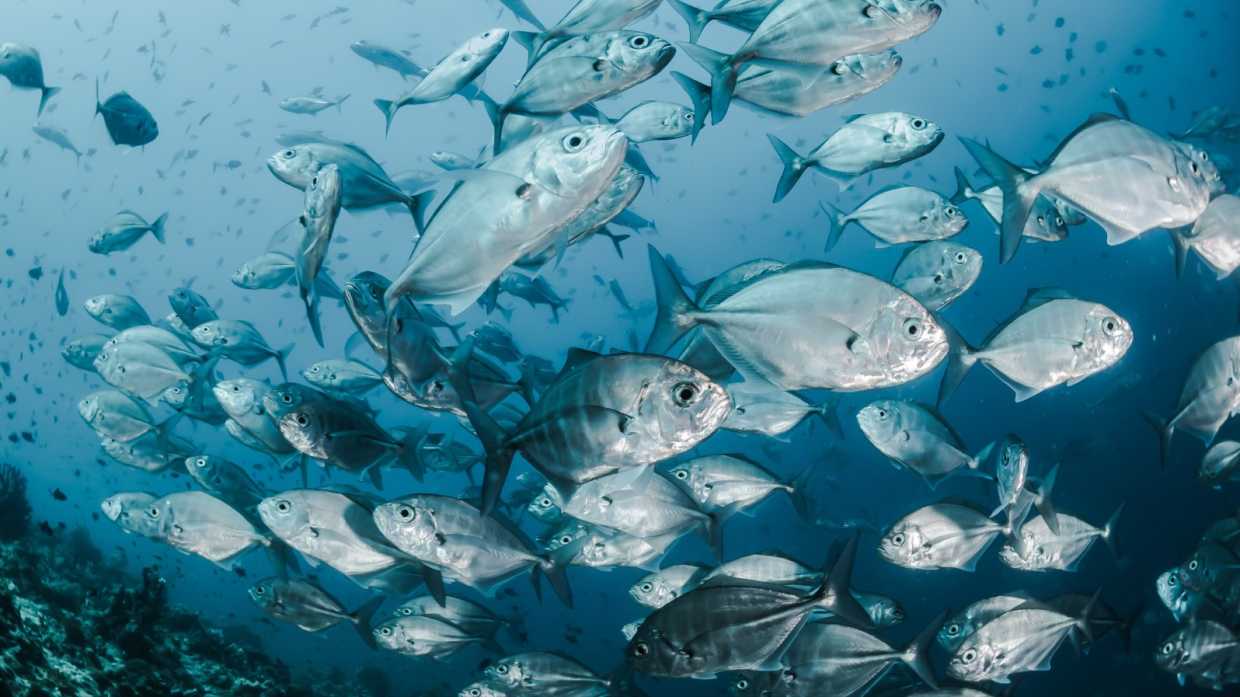Open Farm has sourced sustainable seafood for 100% of our products since we launched as a company in 2014. Specifically, we have sourced either Oceanwise recommended or Marine Stewardship Council (MSC) certified wild-caught fish. Our decision to source wild-caught fish was simple – there was no animal welfare standard to evaluate farmed fish and we wanted to feel confident not only in the environmental sustainability but in the animal welfare components of our supply as well, so sourcing exclusively wild-caught seafood was the best option at that time. The seafood industry has changed for the better in the past 10 years and now that there are animal welfare standards for farmed fish, we’re excited to launch our first products made with farmed fish this month in the US.
We continue to operate in line with our mission to Do Some Good for animals and our planet and sometimes that means considering the new challenges that arise for an industry and recognizing the progress that an industry has made. In seafood, for example, wild salmon populations in the US have been declining due to logging and hydroelectric dams and scientists expect this decline to continue for the next 40 years12.
One of the main criteria we consider when evaluating wild salmon is the health of the populations in the fishery we source from. By sourcing Oceanwise recommended salmon from Alaska for our products, we have confidence that the fish populations are well managed and are caught in ways that cause little harm to ocean habitats and other sea life. Oceanwise also evaluates farmed fish for these same environmental outcomes. While MSC only deals in wild caught seafood, their counterpart Aquaculture Stewardship Council (ASC) focuses exclusively on environmental outcomes of farmed seafood. Since wild caught seafood live their natural lives out in the ocean, there is no animal welfare certification that is applicable.
Many things in the seafood industry have changed for the better in the past ten years, one of them being that there are now farmed salmon animal welfare standards from organizations like Global Animal Partnership (GAP). While fish welfare might not immediately come to mind when considering sourcing standards, it was critical that we felt confident in all aspects of the farms we source from and felt proud to share the details of animal welfare and environmental sustainability. This was our main source of pause ten years ago when deciding to source exclusively wild caught seafood—we couldn’t get comfortable with the way most fish at the time were farmed, despite the environmental certifications.
In farmed fish, there are two main systems: land-based recirculating aquaculture systems and ocean-based pens. When looking at the industry this past year, we felt comfortable with the land-based systems for two main reasons: 1-unlike in ocean-based pens, in land-based systems there is no interaction with wild populations of salmon or with predator species; 2- challenges related to toxins, parasites, antibiotic usage, and biological waste are eliminated because of the controlled environment in the tanks.
Like all the fish we’ve procured since 2014, we wanted these environmental outcomes and others to be verified, which is why we chose to source ASC certified salmon and trout for our new topper products. Similar to other farmed animals in our supply chain, we also wanted to ensure high animal welfare outcomes for farmed fish. While the GAP farmed salmon standard is strong, there is still no certified supply to date.
Therefore, we took the GAP standard and worked with our farmed fish supplier to ensure we were implementing practices that supported the 5 Freedoms of Animal Welfare and Open Farm’s 8 core tenets of animal welfare. The farmed fish that we source for our toppers are free from antibiotics and added hormones, consume a nutritious diet, have plenty of space to swim, swim in high water quality tanks, are managed to reduce disease and mortality, have short duration live transit and are humanely processed.
While we recognize the positive role that fish farming can play in the seafood space, we want to be cognizant of the potential issues associated with certain types of farming and set our standards high. We are confident in the role that land-based farmed fish can play in alleviating pressure on wild populations while achieving high animal welfare and sustainability outcomes. Our existing products that contain seafood, like our Wild-Caught Salmon Kibble or our Wild Ocean RawMix recipe, we will continue to source wild-caught fish. We are proud to source 100% sustainable seafood and excited to bring you and your pets new Icelandic fish topper options this March!
